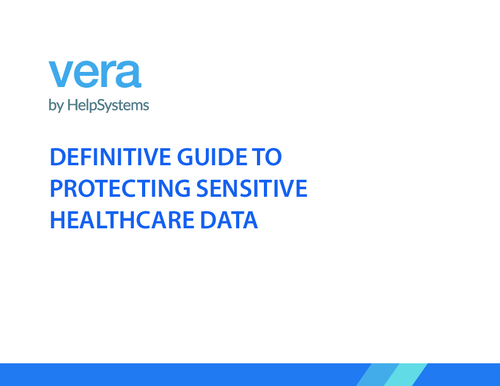HITECH Cuts Called Unlikely to Pass
Hospitals, Clinics Urged to Apply for EHR Incentives Now
The phones are ringing off the hook at the Healthcare Information and Management Systems Society, an association for IT executives, says Dave Roberts, vice president of government relations. "We've received calls from some hospital CIOs asking us, 'Hey, I hear the House is going to take our money away; is that true?"
Roberts is assuring callers that even if the Spending Reduction Act of 2011 passes the Republican-controlled House, where it was introduced, it's highly likely to fail in the Democrat-controlled Senate and would ultimately face a presidential veto.
"The legislation has been referred to 14 separate committees, and there is not a timeline," Roberts notes. "It came out of the Republican Study Group, the conservative wing of the Republican party. And it's unclear if the House leadership will support it."
The measure is so unlikely to pass that it should not deter hospitals and physicians from applying for the payments, says Don Asmonga, government relations manager at the American Health Information Management Association. "It's feasible that it could pass the House, but it's a tough road to get it through the Senate and past the president," he notes.
Asmonga, however, predicts the bill is probably the first of many spending reduction initiatives that could be introduced, all targeting, at least in part, unspent economic stimulus spending, including HITECH. But he notes that there's bipartisan support for the HITECH program's EHR incentives and other initiatives, increasing the likelihood that they ultimately will be spared.
HITECH Cuts Proposal
The Spending Reduction Act of 2011, H.R. 408, would cut $45 billion in unspent money from the American Recovery and Reinvestment Act, better known as the economic stimulus package. HITECH, which was part of that package, includes about $27 billion for electronic health records incentives. It also funds statewide health information exchanges, regional extension centers to assist smaller organizations adopting EHRs and college healthcare IT programs, among other efforts.In addition to jump-starting efforts to automate patient records, HITECH is serving as a catalyst for ramping up information security (See: EHR Incentives Spur Security Steps). That's because to qualify for the incentives, hospitals and physicians must conduct a risk assessment and mitigate identified risks. They also must use a certified EHR system that includes security functions.
Organizations that qualify for Stage 1 of the EHR incentives get 70 percent of their payment upfront, Roberts notes, with the remainder coming in future stages over three years. "So if a provider organization applies early, they can get a lot of their incentive payment before the budget cut policy is even decided."
EHR Urgency
Patti Dodgen, CEO at the IT consulting firm Hielix, says that even if the current bill fails, Congress might take a fresh look at HITECH cuts later if relatively few organizations apply for incentives or if there's little evidence that EHRs are helping improve quality. As a result, Dodgen, who advises hospitals and clinics on EHR strategies, urges organizations to apply sooner rather than later "to avoid getting the short end of the stick."Once about a third of physicians have adopted an EHR and are exchanging information, consumers will demand all doctors follow suit, Dodgen predicts. "And that will make it difficult to reduce HITECH funding," she contends.
Dodgen and Asmonga, however, acknowledge that if the Congressional debate on cutting stimulus funding drags on, it could lead some hospitals and physicians to wait on the sidelines rather than apply for incentives.
"Another thing that could potentially happen is if there's low interest among hospitals and physicians in the incentives, the Department of Health and Human Services might take a fresh look at the requirements for qualifying and lessen them to encourage more applications," Asmonga says.
Derailing EHR Work
Dodgen says it's unfair for Congress to pull the plug on the EHR incentives two years after the stimulus package was approved. "It seems unfair to doctors and hospitals that have been working to become meaningful users of EHRs to qualify," she says.Roberts of HIMSS contends: "The purpose of the stimulus was to get people spending money on good, quality ideas, and this is one of those."
The eHealth Initiative, a Washington-based IT advocacy organization, offers a similar point of view. "The movement to bring healthcare into the 21st century has been a largely bipartisan effort since the early days of health IT, and we hope to see this admirable and productive bipartisanship sustained in future healthcare legislation and budgets," the organization said in a statement.
"We realize that the Spending Reduction Act represents a principled stand against government spending, but we would encourage members of Congress to not use the HITECH Act or any of its provisions as a target, as that will only create further uncertainty in the healthcare sector."
But futurist Jeff Bauer, who says the HITECH program has a high probability of failure, contends that as more hospitals and physicians become aware of the high costs and hassles involved in qualifying for the EHR incentive payments, many will choose not to participate. Instead, he says, they'll follow their own "digital transformation" agendas at their own pace (See: Futurist Questions HITECH Act Viability).
The HITECH EHR incentive program just kicked off last month, and extensive payments from Medicare and Medicaid aren't expected to flow until May, although some states have started to issue their first Medicaid payments.





















